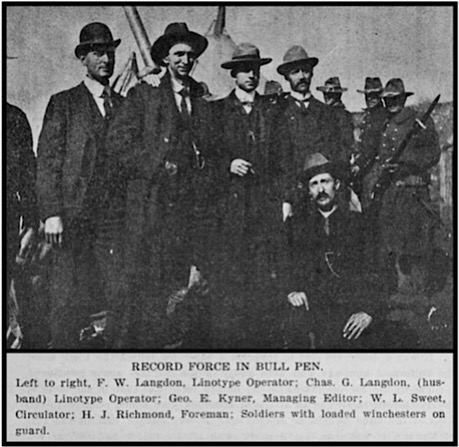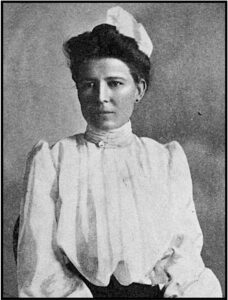 ————————-
————————-
Hellraisers Journal – Thursday September 1, 1904
Cripple Creek District, Colorado – The Torture and Deportation of A. G. Leduc
Terror still reigns against union miners and union sympathizers in the Cripple Creek Strike Zone of Colorado. Mrs. Emma Langdon, of Victor, Colorado, reports from the Cripple Creek Strike zone:
The Inter-state Mercantile Company is seeking relief through the federal courts from mob terror. This company operates the stores which assist the striking miners and their families, and, being run by an out-of-state company, they are able to take their case into the federal courts.
State wide pressure placed upon Governor Peabody forced the executive of the state to offer state troops to the Sheriff of Teller County in order to quell the violence of the white-cappers [Citizens Alliance]. This offer was rejected by Sheriff Bell, the sheriff chosen by the white-cappers to replace Sheriff Robertson who was deemed too sympathetic to the W. F. of M. and was forced to resign or be hanged.
Sheriff Bell has now arrested a member of the clergy, Rev. Leland, who is considered too friendly to the union cause.
And finally Mrs. Langdon reports on the case of A. G. Leduc, member of the Western Federation of Miners. Leduc was kidnapped by the white-cappers, beaten, terrorized and driven from the his home and family. He was able to make his way to Denver, but his condition is serious.
MRS. EMMA F. LANGDON REPORTS
FROM THE CRIPPLE CREEK STRIKE ZONE
—————
Interstate Mercantile Company Appeals to Federal Court
On August 23, H. N. Heinerdinger, manager of the Inter-state Mercantile Company, which had some time previously, taken the control of the union stores of the district, applied to Judge Riner and Judge Hallett of the Federal court, first for an injunction restraining any one in the Cripple Creek district from interfering with the operations of the store; second, for damages against Teller county and certain individuals for the wrecking of the store, and third, individual suits for personal damage brought by Mr. Heinerdinger and F. J. Hall, citizens of Montana, who purchased and owned the store in Cripple Creek.
The Mercantile Company applied for the aid of the Federal court because it was a corporation organized under the laws of Montana, which made it a citizen of another state than Colorado. It was the diversity of citizenship between the company and the defendants which gave the Federal court jurisdiction to act. Most of the other deported men being citizens of Colorado as well as the deporters, the Federal court could not act for them.
Governor Offers Troops
[With citizens of the state becoming more disturbed over the outrages perpetrated on citizens in Cripple Creek], the governor, in order to make it appear that he would make an effort to maintain law, sent the following communication to Sheriff Bell, of Teller county:
State of Colorado, Executive Chamber,
Denver, Colo., Aug. 27, 1904.
Hon. Edward Bell, Sheriff of Teller County, Cripple Creek, Colorado:Sir—Upon Saturday, the 21st inst., there was assembled in Teller county a disorderly mob of men. This mob destroyed private property and maltreated and drove from the county a number of citizens and other persons.
Teller county has been a source of much anxiety to my administration. Order has been restored there at great expense to the state, and the militia, after a protracted service, rendered with the single purpose of making life and property secure, had only recently been withdrawn.
Your county had been freed, as I hoped, from criminal disturbers of the peace; the civil offices of your county are now filled, as I am informed, by incumbents who desire to extend to all citizens the full protection of the law. I recalled the troops because I believed and was informed that your community was once more safe in the hands of such officers. If I am right in so believing, there should be no occasion for lawless outbursts such as that of Saturday last.
I am recently informed that a similar mob of men have in contemplation another and still further outrage. I am convinced that you, as sheriff, having the full sympathy and support of the civil authorities, can and should maintain peace and lawful order. I therefore desire to say that should you not be able, with the means at your disposal, to successfully cope with the situation and maintain law and order in Teller county, I am ready to again place at your disposal the militia of this state.
Our paramount duty at this and at all times is to uphold the law and its safeguards, without distinction of interests or of individuals.
I will thank you for an early reply, and am, respectfully yours,
JAMES H. PEABODY. Governor.

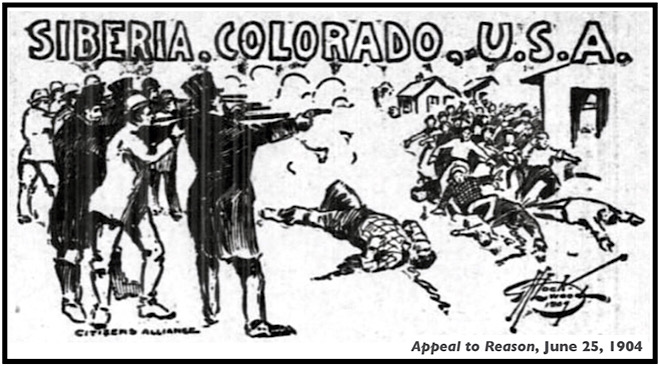
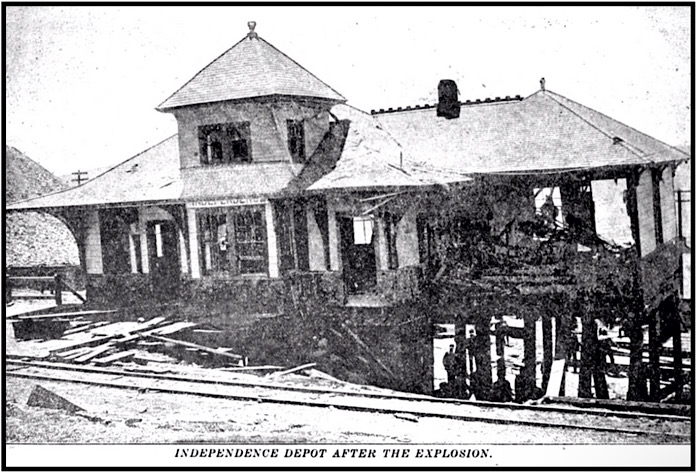
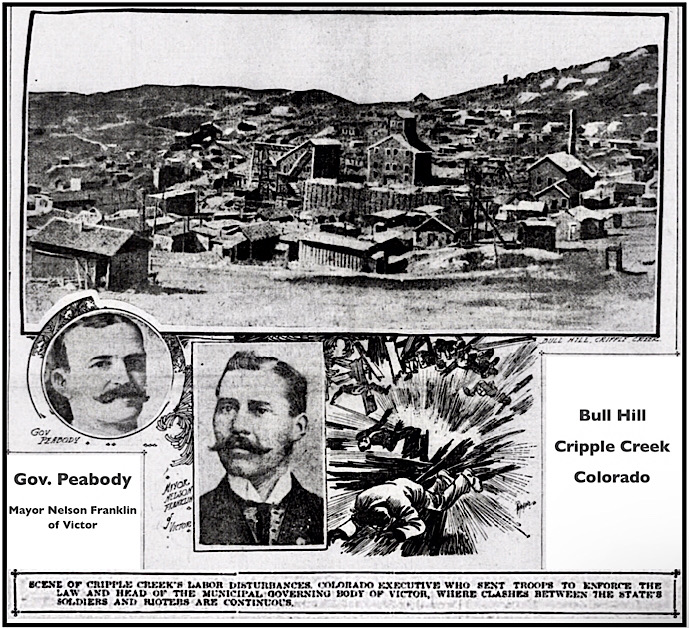
 —————
—————